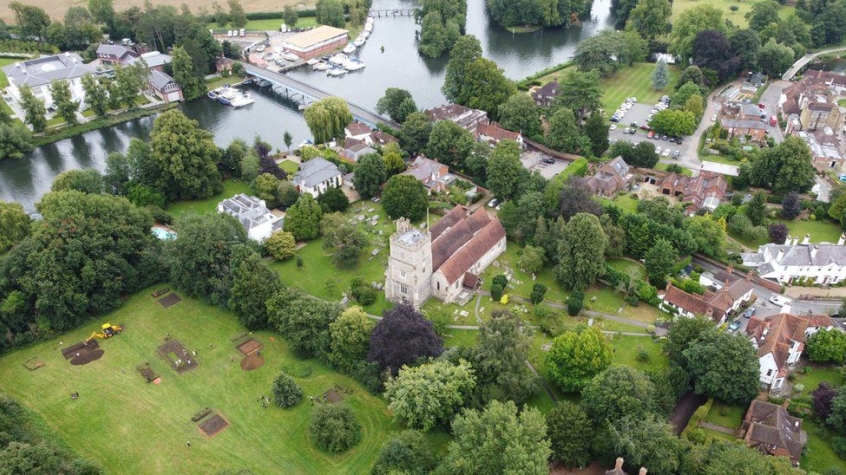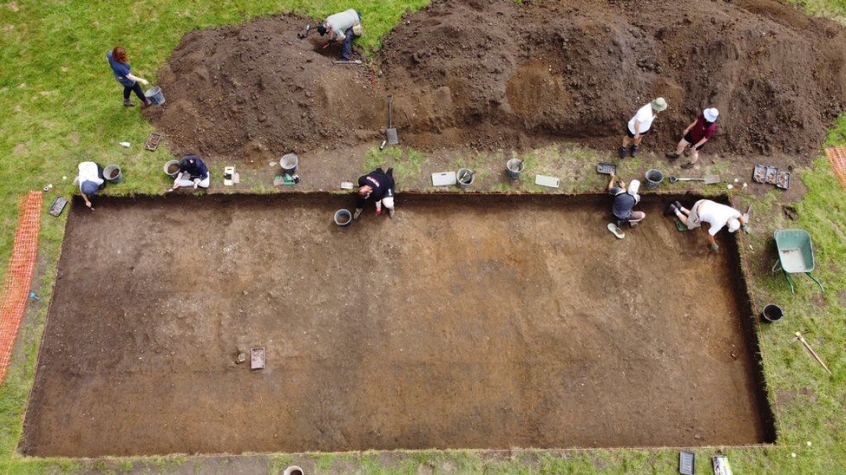
An archaeological dig in the grounds of a church is offering fresh glimpses into one of the most powerful women of the early middle ages.
Archaeologists have spent the summer digging in the grounds of Holy Trinity Church, Cookham, Berkshire, hoping to find the remains of an 8th century monastery whose exact location has until now been something of a mystery.
The monastery, situated on the banks of the Thames, was under the rule of a royal abbess, Queen Cynethryth, the widow of the powerful King Offa of Mercia.
The monastery would have been important in its day, sitting along a contested boundary between the kingdoms of Mercia and Wessex, and along the Thames trade route.
Now archaeologists from the University of Reading say they have found it after uncovering the remains of timber buildings which they believe would have housed inhabitants of the monastery.
Lead archaeologist Dr Gabor Thomas said: "The lost monastery of Cookham has puzzled historians, with a number of theories put forward for its location. We set out to solve this mystery once and for all."
Other areas uncovered during the excavation show signs of industrial activity, including a cluster of hearths probably used for metalworking.
The dig has also yielded food remains, pottery vessels used for cooking and eating, and items of personal dress including a delicate bronze bracelet and a dress pin, probably worn by female members of the community.
The finds have excited archaeologists because until now, historians were unsure of the exact location of the monastery and knew little about the lives of its inhabitants.

"Despite its documented royal associations, barely anything is known about what life was like at this monastery, or others on this stretch of the Thames, due to a lack of archaeological evidence," said Dr Thomas.
"The items that have been uncovered will allow us to piece together a detailed impression of how the monks and nuns who lived here ate, worked and dressed.
"This will shed new light on how Anglo-Saxon monasteries were organised and what life was like in them."
Cynethryth became abbess at the monastery after the death of King Offa in AD 796 and before her own death some time before AD 798.
A powerful figure, she was the only Anglo-Saxon queen known to be depicted on a coin.
"Cynethryth is a fascinating figure, a female leader who clearly had genuine status and influence in her lifetime," said Dr Thomas.
"Not only were coins minted with her image, but it is known that when the powerful European leader Charlemagne wrote to his English counterparts, he wrote jointly to both King Offa and Queen Cynethryth, giving both equal status.
"We are thrilled to find physical evidence of the monastery she presided over, which is also very likely to be her final resting place."













